Nike Zoom Fly 6 review: Everyday trainer with a touch of race-day magic
With a taller stack, reworked foam, and a versatile design, the Nike Zoom Fly 6 is here to bridge the gap between daily training and race-day readiness

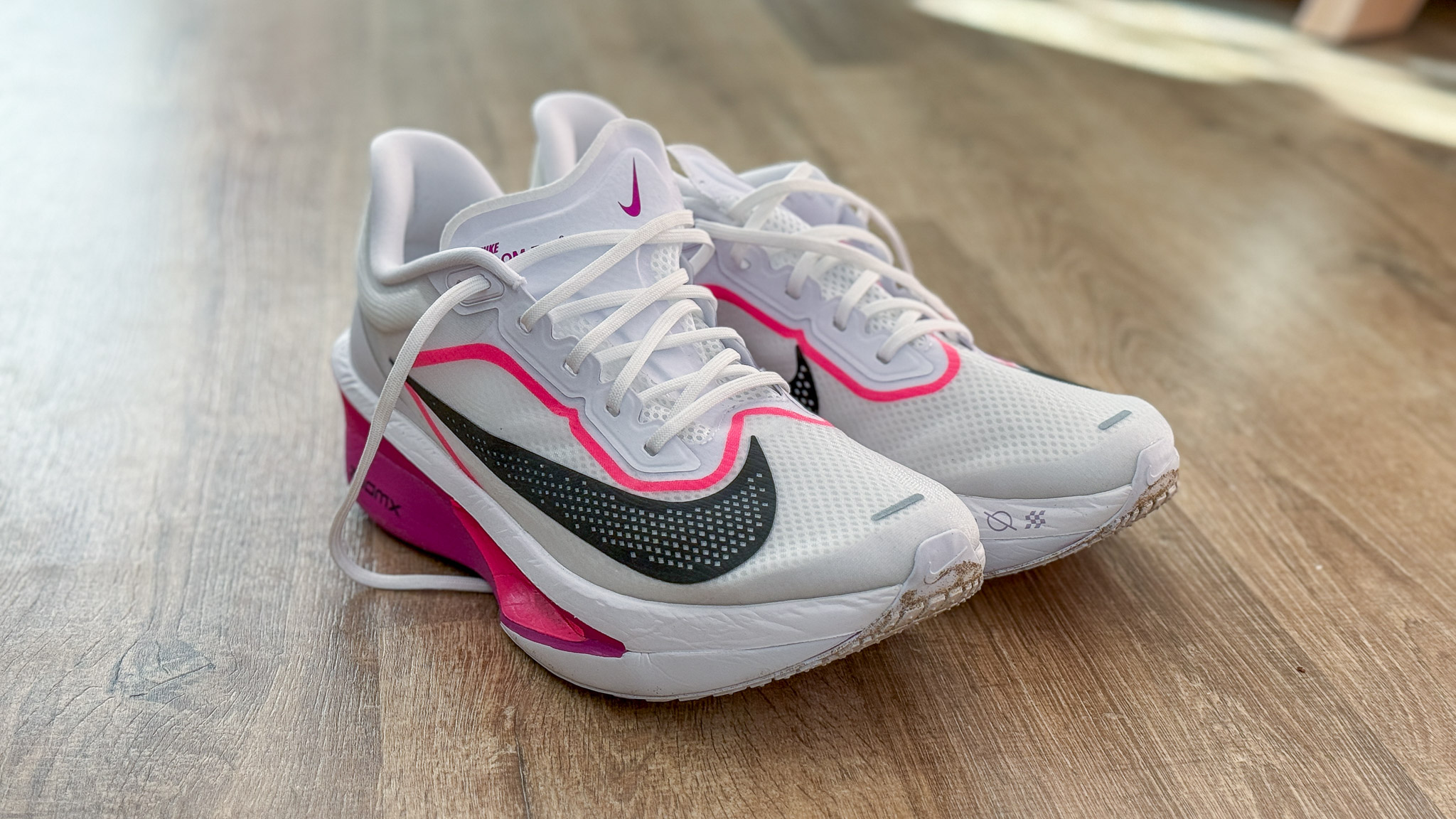

The Nike Zoom Fly 6 strikes a sweet spot between versatility and performance. With a lightweight, responsive design and improved comfort, it's a solid choice for both training and racing. While not as explosive as Nike’s elite models, its affordability and do-it-all nature make it a dependable companion for most runners.
-
+
Lively ‘do-it-all’ training shoes
-
+
Lightweight design
-
+
Tall foam helps reduce impact on joints
-
+
Looks great
-
-
Not as propulsive as the Vaporfly/Alphafly range
Why you can trust T3

Nike is striving to rediscover its roots as an innovative, athlete-centric powerhouse. In recent years, this iconic sports brand—renowned for its excellence—has concentrated on optimising its e-commerce strategy, inadvertently moving away from the core value that defines its legacy: an unwavering commitment to the relentless pursuit of progress.
The Nike Zoom Fly 6 is part of a new cohort of shoes that is set to change that. Although it’s not part of the revamped Nike running shoe lineup, it’s a big departure from the previous iteration: it’s taller, has a different foam structure and has a reworked upper. In short, it’s a very different beast from the Zoom Fly 5.
I’ve been running in the shoes for a few weeks now, and they really grew on me. Initially, I thought I’d only use them for tempo sessions, but after a while, I found myself reaching for them for slower sessions, too. They are comfortable and just fun to run in, no matter your speed.
How do the Nike Zoom Fly 6 compare to the best running shoes and other ‘’super trainers’? Should you get one? What are the benefits and drawbacks of the shoes? Find the answer to this and more below.
Nike Zoom Fly 6 review
Price and availability
The Nike Zoom Fly 6 was announced in October 2024 and is abailable to buy now at Nike UK, Nike US and Nike AU for a recommended price of £154.99/ 170/ AU$260. The shoes are available for both women and men. It comes in a few colourways (everyone’s current favourite is the Eliud Kipchoge version), with more to follow next year, according to the brand.
Just a note on colour. Nike sent me the White/Vivid Grape/Hyper Pink/Black colourway, which is only available for women online, as some people pointed out on social media. I wear UK 10 shoes, and the women’s version doesn’t go up to that size, so I assume it’s a men’s shoe in a seemingly unavailable colourway.
Specifications
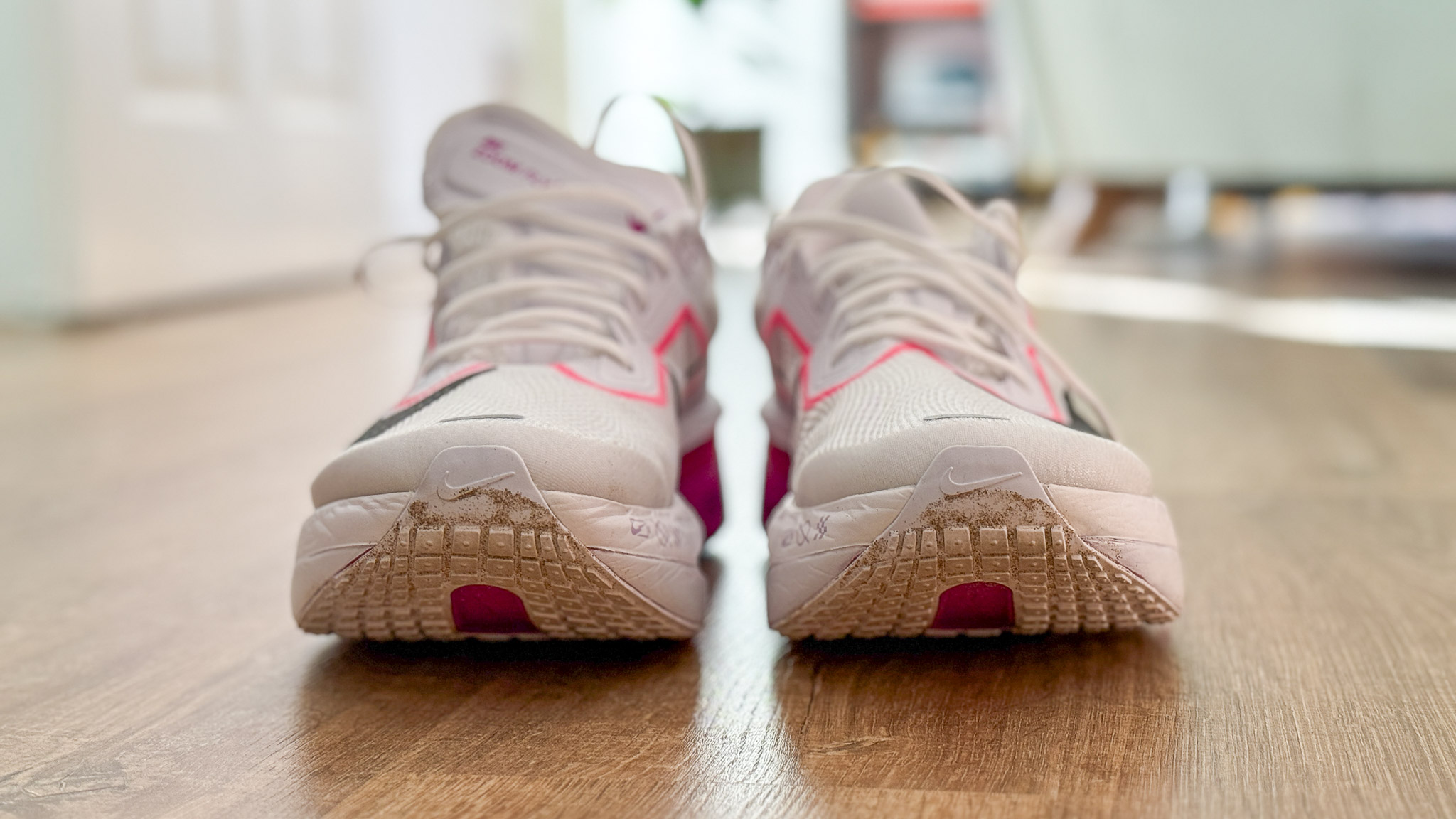
- Best for: daily training, tempo and interval runs, racing
- Tested weight: 282g/ 9.95oz (men's UK 10/ US 11)
- Stack height: 42 mm (heel); 34 mm (forefoot)
- Drop: 8mm
- Fit: True-to-size
- Support: Neutral
Design and materials
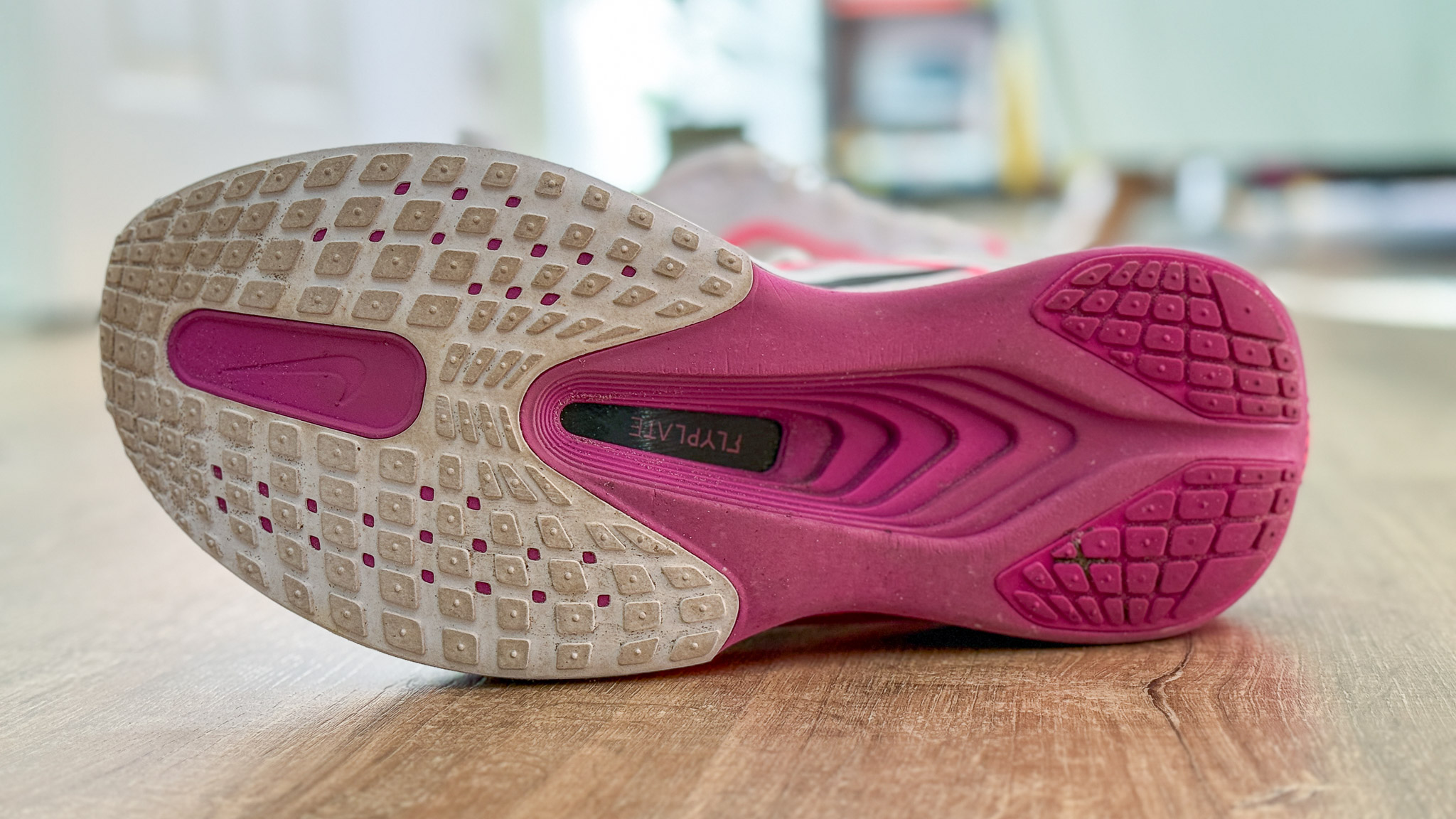
The Nike Zoom Fly 6 is a big departure from the previous iterations. It features a dual-layer midsole, adding the SR-02 foam on top of the ZoomX, the latter of which is positioned mainly under the heel. Embedded between the two foam layers, you’ll find the FlyPlate carbon plate.
Get all the latest news, reviews, deals and buying guides on gorgeous tech, home and active products from the T3 experts
The foam is carved throughout to reduce weight. In fact, the Zoom Fly 6 is supposed to be at least 10% lighter than its predecessor. The new outsole with its thin web of rubber also helps keep the weight down. The lightweight and grippy rubber material is positioned in critical areas like the forefoot and the medial and lateral side under the heel.
The Zoom Fly 6 is taller than the Zoom Fly 5 with its 42 mm stack height under the heel. It has a shallower, 8 mm drop compared to the predecessor, but you still get 34 mm of foam under the forefoot, which is more than enough to provide that plush feeling during your longer runs.
The upper has also been changed and now features a two-layer woven mesh system wth synthetic leather areas for additional support. The gusseted tongue sits nicely on top of the foot and in my experience, does an excellent job in reducing pressure coming from the laces.
There is plenty of foam around the ankles, anf the heel counter feels supportive, too, creating a 360-degree support system at the back of the foot. The toe box is rounded and tall but tapers quickly towards the mid-section of the shoes.
Performance and comfort
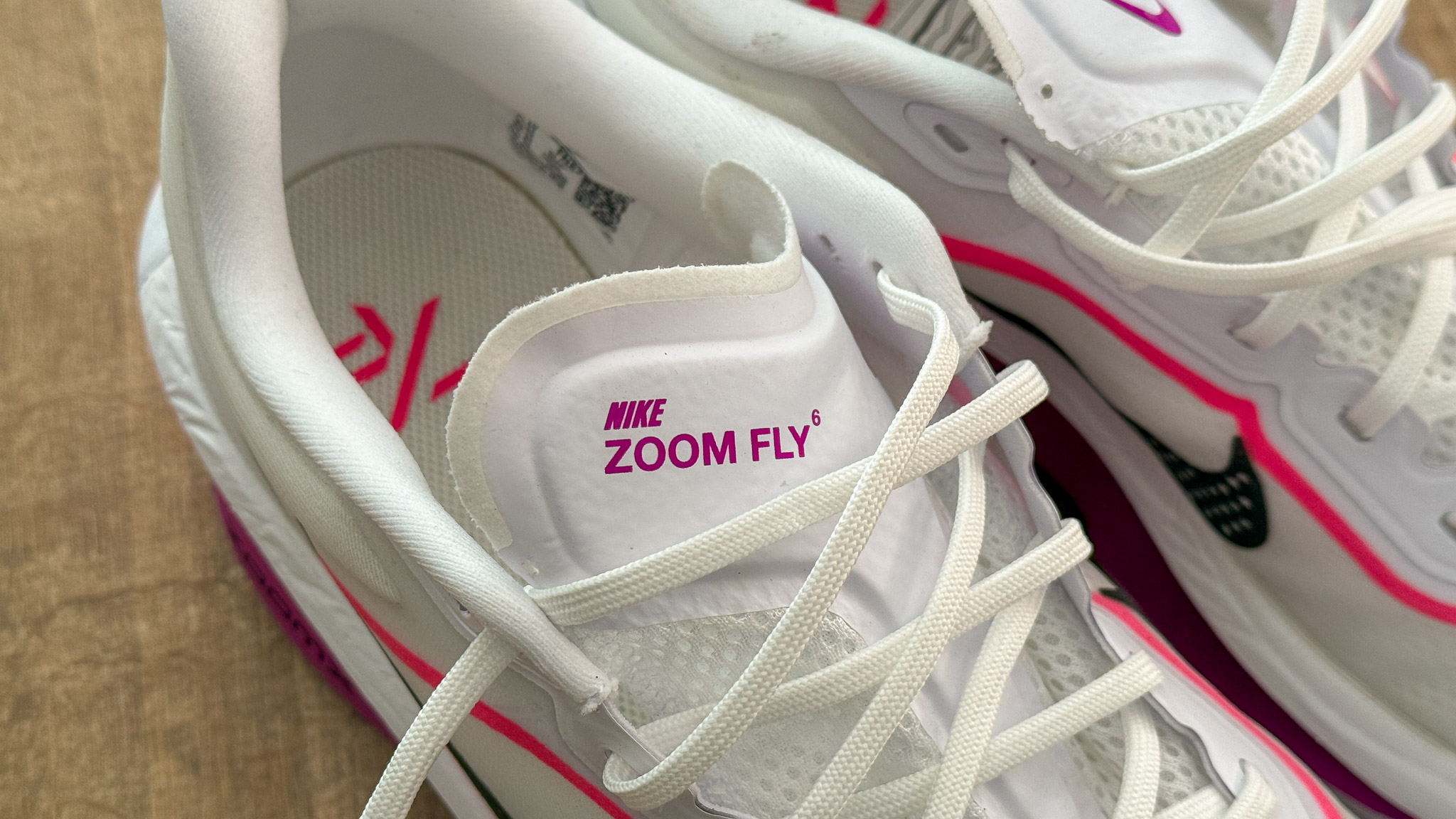
I found the Nike Zoom Fly 6 snug the first time I tried them on. I have a bit of a hit-and-miss relationship with Nike running shoes; some fit perfectly, while others can be either a bit tight (e.g. Pegasus 41) or too loose (e.g. Nike Invincible Run 3). Initially, I thought the Zoom Fly 6 will fall into the latter category.
Then, I took them out on a run, and my worries melted away instantly. Nike says the new upper has a sock-like fit, and it really is true for the Zoom Fly 6. I went on faster and slower runs and felt no discomfort during or after runs despite having wide feet. A big win in my books!
The shoes have a dual-layer midsole and an embedded propulsion plate, which makes them ideal for faster runs. I prefer not to wear high stack, plated shoes for slower training, as I find them quite taxing on the lower legs – this wasn’t the case with the Zoom Fly 6.
It might be because the plate isn’t that aggressive or the extra foam underfoot, but the shoes are downright comfortable at any pace. Sure, you won’t get quite as much energy back as when you run in the Nike Alphafly 2, but for training, I think it’s almost unnecessary.
Traction is excellent; the webbed rubber outsole helps provide stable footing in on tarmac. I also found the groove in the foam under the heel act almost as a suction cup, almost sealing the shoes to the ground during landing. Stability is excellent, thanks to the wider forefoot platform and the firm plate.
The shoes are taller than the 40 mm maximum stack height limit posed by the World Athletics, but lets face it, companies (and runners) care less and less about the blanket ban on tall running shoes. Many new trainers are getting taller and taller (the Hoka Mach X 2: 44 mm, Asics Navablast 5: 41.5 mm), including the recently announced Nike Vomero 18 with its 46 mm stack height.
In essence, the Zoom Fly 6 is comfortable and propulsive, but don’t expect the same responsiveness some thoroughbred Nike running shoes provide. I’d argue that the energy return coming from the shoes is enough for racing, but I’m sure some of the most hardcore runners would disagree with this statement.
Who’s the Nike Zoom Fly 6 for?
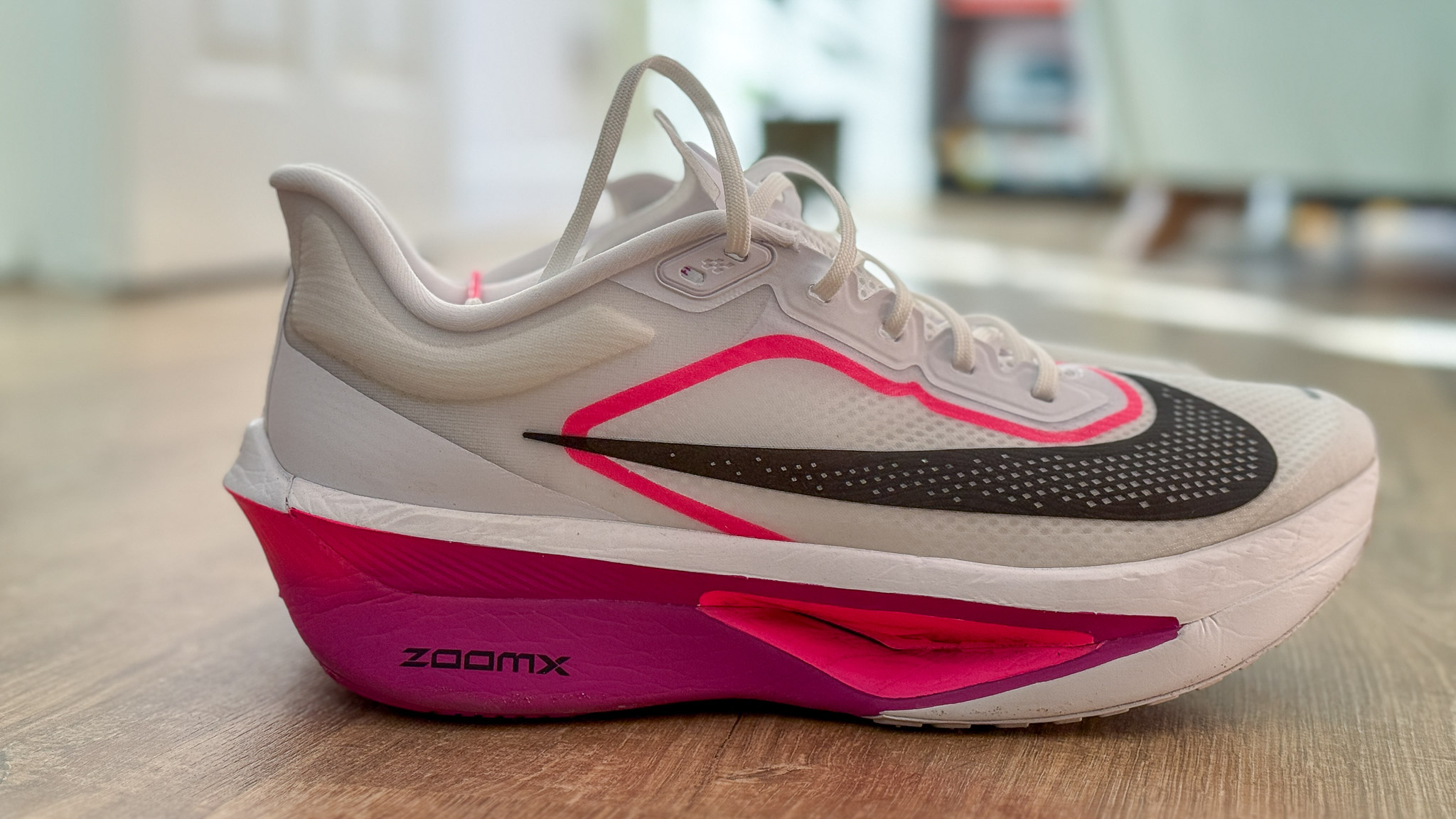
The Nike Zoom Fly 6 can be used for training and racing. It’s best suited for runners who like to push the tempo, whatever that means to them (as in, it’s not just for the fastest runners). The taller than 40 mm maximum stack height might deter some professional runners from using them in races, but let’s be frank: those runners are already affiliated with a company, so it doesn’t matter too much to them.
Should you buy the Nike Zoom Fly 6?
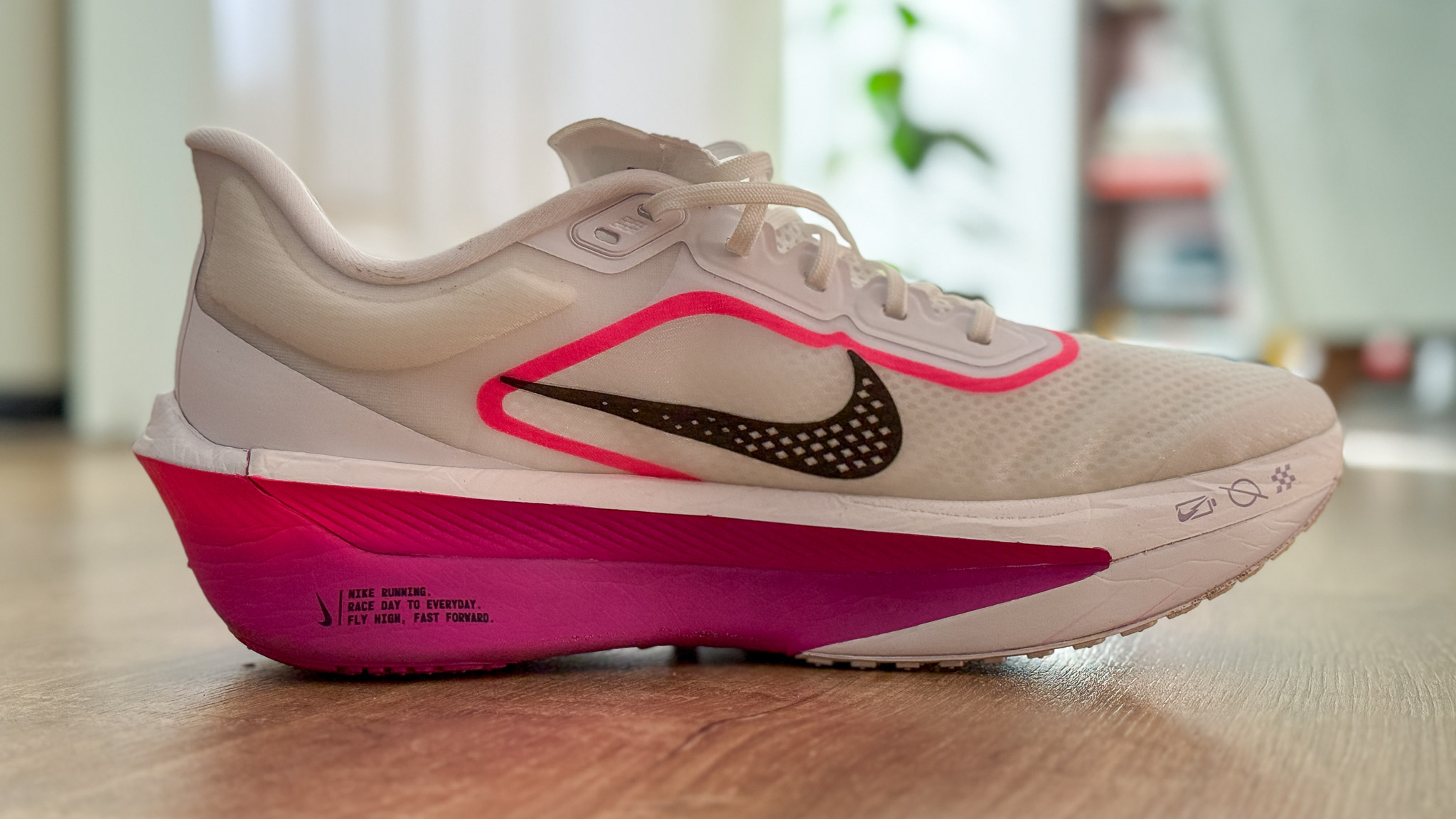
The Nike Zoom Fly 6 sells for £154.99/ $170/ AU$260, which – and it pains me to say this – is a comparatively affordable price for a running shoe in this category these days. Better still, unlike the Vaporfly/ Alphafly due, the Zoom Fly 6 is a do-it-all shoe, meaning you can use them for training and racing. If you prefer to run faster, they are certainly an option to consider!
Verdict
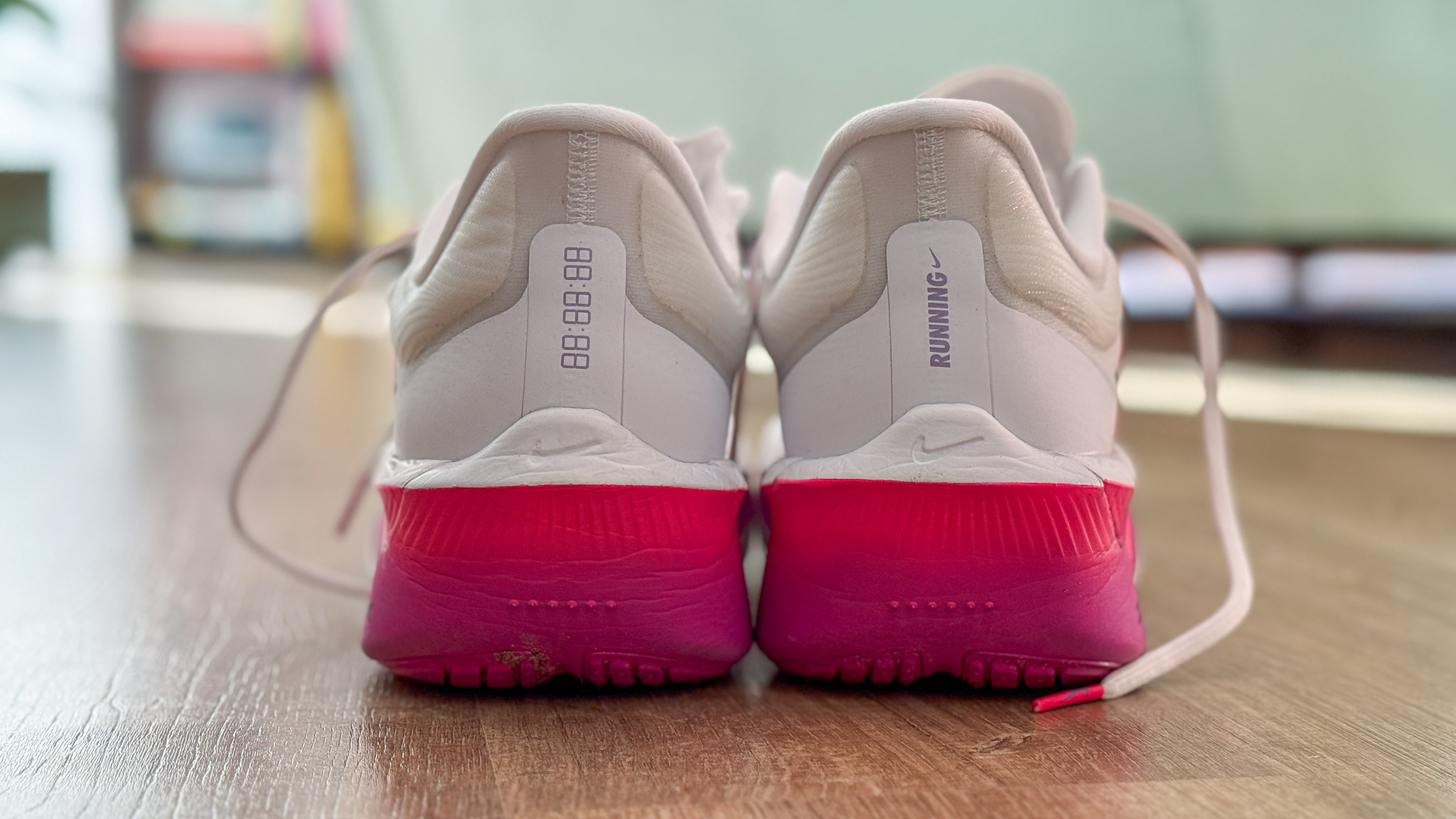
The Nike Zoom Fly 6 is a versatile and improved option for runners seeking a balance between training and racing. Even though they may not fully match the performance of Nike's top-tier racing shoes, the shoes are an excellent option for runners looking for a do-it-all trainer with a responsive feel.
I look forward to seeing where Nike takes the Zoom Fly franchise in the future. for now, I’ll be enjoying running in the Zoom Fly 6. If the GOAT Eliud Kipchoge to be believed, the shoes work as well on dirt roads as on tarmac, which is something I’m yet to experience. All the more reason to keep running in them!
Also consider
Hoka Mach X: The Hoka Mach X offers a similarly tall stack height and a lightweight, cushioned ride, but its ProFlyX foam provides a softer, more forgiving feel compared to the Zoom Fly 6. It's ideal for runners prioritising comfort over the slightly firmer, more propulsive ride of Nike’s FlyPlate.
Adidas Adizero Takumi Sen 10: Designed for shorter distances, the Takumi Sen 10 features Lightstrike Pro foam and EnergyRods, offering a snappier, more aggressive performance for tempo and interval sessions. While it lacks the versatility of the Zoom Fly 6 for slower runs, it's a better option for runners seeking a sharper, race-focused edge.
Saucony Endorphin Speed 4: A versatile all-rounder, the Endorphin Speed 4 combines PWRRUN PB foam with a nylon plate, offering a more natural, flexible feel than Nike’s carbon-infused FlyPlate. It’s slightly more responsive and better suited for those wanting a single shoe for both training and racing.

Matt Kollat is a journalist and content creator who works for T3.com and its magazine counterpart as an Active Editor. His areas of expertise include wearables, drones, fitness equipment, nutrition and outdoor gear. He joined T3 in 2019. His byline appears in several publications, including Techradar and Fit&Well, and more. Matt also collaborated with other content creators (e.g. Garage Gym Reviews) and judged many awards, such as the European Specialist Sports Nutrition Alliance's ESSNawards. When he isn't working out, running or cycling, you'll find him roaming the countryside and trying out new podcasting and content creation equipment.